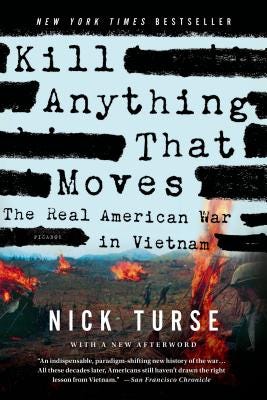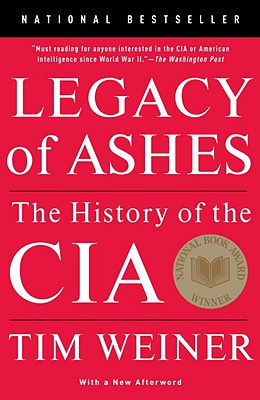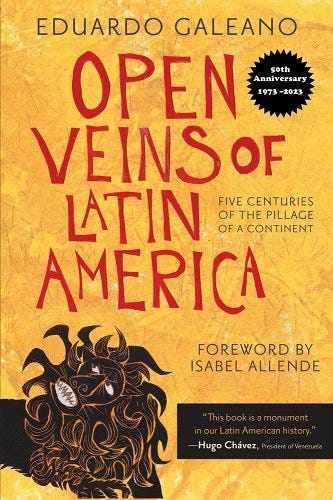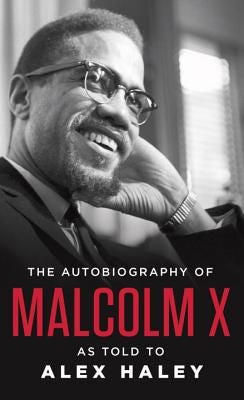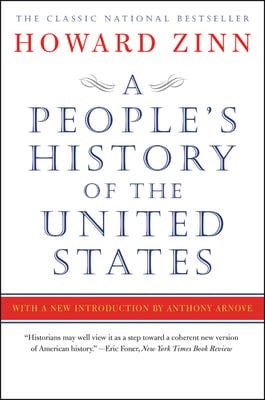Book Rex: 5 books that will kill your inner patriot
We're coming in hot this week: America hasn't just been a dumpster fire the past 7 years!
Note: As always, these books are affiliate linked to Bookshop.org, which means that if you buy through the link, I get a small kickback. This does not have any effect on the books I choose. I never affiliate link to Amazon.
If you, like me, come from a certain demographic group (white, male, etc.) you were likely raised to feel misty warm feelings at the sight of the American flag or the sound of the national anthem.
There are still enormous swaths of the American public that act like this: they cover the back of their truck beds with enormous American flags, “Don’t Tread On Me” flags, or the Thin Blue Line flags that imply they are happy with indiscriminate police violence.
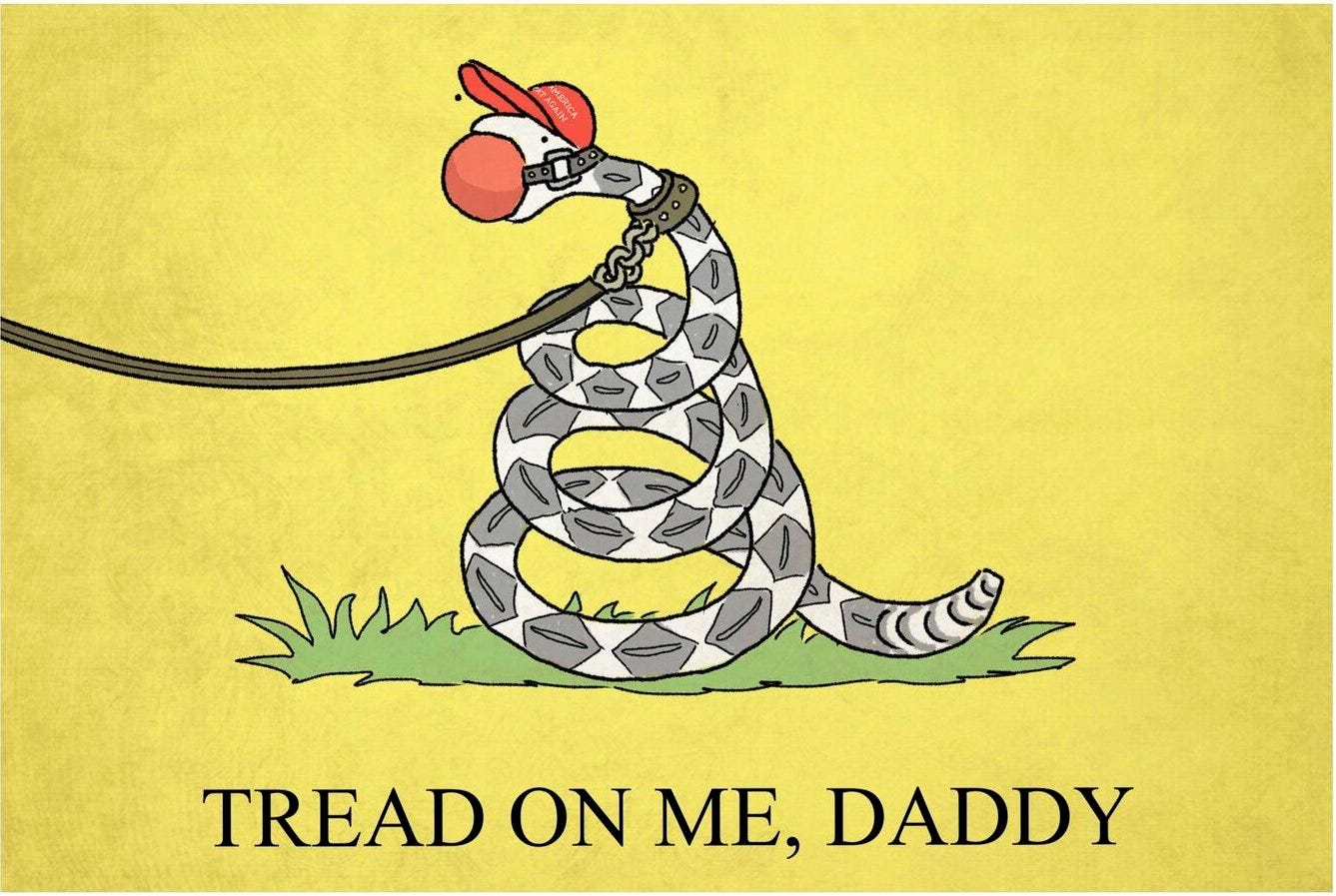
But many of us over the past few years have been forced to wake up to the reality of what American society is: it’s a meatgrinder. It’s designed to wring every penny of value it can from every human life, and it will only give us rights that we fight for, so long as we promise to never stop fighting for them.
So hey! Here are some books to annihilate whatever patriotism remains in those rickety old bones of yours.
Kill Anything That Moves by Nick Turse
Nick Turse’s Kill Anything That Moves is a chilling look at how seemingly reasonable decisions made at the top of the chain in the American military machine can result in countless civilian deaths.
The book is focused on the war in Vietnam, and specifically, Secretary of Defense Robert McNamara’s insistence that there be quantifiable metrics for success in the Vietnam War. His metric of choice? Vietnamese enemy combatants that were killed in combat, AKA the “body count.”
Anyone who has watched The Wire knows what happened next: the generals and officers in the field began “juking the stats.” Because enemy combatants in the guerrilla war were often not in uniform, anyone dead could be after the fact declared an “enemy combatant.” It created a system that rewarded less scrupulous officers who would murder civilians and claim them as enemies, and punished officers who took care not to kill the innocent.
As a result, well-known crimes against humanity like the My Lai massacre became special only in that the press got wind of them — now, decades later, we know that My Lai-like massacres were happening on an almost constant basis, and that one operation after the Tet Offensive, known as Operation Speedy Express, likely killed at least 7000 Vietnamese civilians.
Legacy of Ashes: The History of the CIA by Tim Weiner
Since the 1950s, the CIA has existed, nominally at least, to keep Americans safe. It appears to have never adequately done that. In the Cold War, rather than pursuing American public interests (which would obviously have been a lowering of tensions in order to avoid a potential nuclear war) the CIA fought for the interests of American businessmen.
They did this by overthrowing democracies, by funneling money to oppressive dictators, and by utterly failing to get reliable sources on the ground to fight our main geopolitical opponent, the USSR and the PRC. Later, when the Cold War ended (no thanks to them) they completely failed to prevent the 9/11 attacks on the United States, which they full well knew were coming.
The CIA has since been in large part supplanted as the go-to intelligence collecting resource by the even more invasive and secretive NSA, but it remains a perfect symbol of the reality of American democracy — power, as it does everywhere, protects power. Not the people it claims to have power over.
Open Veins of Latin America by Eduardo Galeano
Eduardo Galeano’s Open Veins of Latin America is to Latin America what A People’s History of the United States is to the US. It is a catalogue of hundreds of years of colonialism and brutality carried out by the European (and North American) powers against the New World.
The project of European society in these continents has not been a civilizing one, Galeano shows, but an extractive one. It has been to bleed these countries dry of their natural resources at the expense of those that were here first in order to enrich the Europeans. The means by which they did this were brutal — genocide, enslavement, mass murder, torture, and ecological annihilation.
Given the modern surge of leftism in Latin America (and the concurrent surge of cryptofascist movements) this is a good book to read for an understanding of the history. If we only see land as a thing to be exploited, and not something which we are a part of and therefore must care for, we should expect this sort of brutality and destruction to continue.
The Autobiography of Malcolm X
Malcolm X is a hard read if you’re a white guy. I was brought up in the predominantly centrist-liberal strand of “the civil rights movement was good, but because of Martin Luther King, Jr., not any of his more violent counterparts.”
Malcolm X was decidedly more radical and unforgiving about the nature of American white supremacy than MLK was. And if I’m being honest — I think Malcolm X’s rhetoric worked better on my white brain than MLK’s did? The reason is that with MLK’s rhetoric, you could always put the racism out there — it was the Southern hillbillies that were the racists, it was the sheriffs and klansmen of the Deep South, it was the policemen and rich white powerbrokers up north. Reading Malcolm X, you have to confront what’s inside you, which is a much harder thing to do. Because reading his life story, it is pretty hard to argue that you, in the same position, would have a less radical attitude towards white America than he did.
The conciliatory attitude of the more peaceful section of this movement undoubtedly lowered the barrier to entry for a lot of white activists, which was certainly a major factor in the movement’s success. But we’re still fighting the same battles decades later — we may have to accept that Malcolm X was right. It wasn’t parts of white America. It is all of white America. The problem lies at the root of this country’s power, and to meaningfully confront it would mean to irrevocably change what this country is.
A People’s History of the United States by Howard Zinn
This book is a smack-on-the-head “duh” choice if you’ve ever traveled even gently in leftist circles, but I include it because Zinn — who died in 2010 — left behind a massive legacy that has resulted in countless spin-offs of his epochal alternative history of the U.S. Because of this book, we now have books like the comic A People’s History of American Empire, An Indigenous People’s History of the United States, A People’s History of the World, A People’s History of Christianity, and more.
Zinn’s premise is simple — he rejects the “Great Man” theory of history, which says that major events are caused by the actions of great and powerful people. Instead, he says, history is made by the masses of people. But most history books spend little to no time focusing on the poor, the working classes, or the marginalized groups in society. Zinn’s book changes that, and gave us a scaffolding to look at all of human history through the lens of the powerless rather than the powerful.





